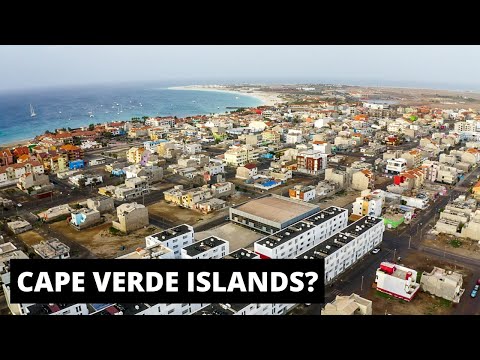
Nestled in the central Atlantic Ocean, off the western coast of Africa, lies a captivating archipelago known as Cape Verde. Officially called the Republic of Cabo Verde, this collection of 10 islands and several islets is a blend of breathtaking landscapes, rich cultural heritage, and vibrant communities. Each island offers its own unique allure, making Cape Verde a fascinating destination to explore. This article delves into what makes Cape Verde truly special, from its stunning natural beauty to its diverse cultural tapestry.
**Geographical Diversity**
Cape Verde’s islands are divided into two groups: the Barlavento (windward) islands and the Sotavento (leeward) islands. Among them, São Vicente, Sal, and Boa Vista are famed for their beautiful beaches and bustling tourist activities. Santiago houses Praia, the capital city and largest urban center in Cape Verde. Fogo is renowned for its active volcano, Pico do Fogo, which last erupted in 2014.
Each island has its own ecological system ranging from arid plains to lush green mountainsides. The variation in scenery provides opportunities for numerous types of adventures like hiking in Santo Antão’s dramatic ribeiras (valleys), exploring the sandy dunes of Sal or experiencing the volcanic landscapes of Fogo.
**Cultural Melting Pot**
The culture of Cape Verde is a rich mosaic influenced by African, Portuguese, and Brazilian elements owing to its historical ties with these regions through colonization and trade routes. Music plays an integral role in Cape Verdan life with genres like Morna – often associated with internationally acclaimed singer Cesária Évora – Coladeira, and Funaná reflecting deep emotional narratives or lively dance rhythms respectively.
Language also exemplifies this cultural blend; while Portuguese is the official language used primarily for official purposes and education, Kriolu (or Crioulo), a creole based on Portuguese with West African influences, is spoken ubiquitously among locals.
**Economic Aspects**
Traditionally reliant on agriculture with products like bananas, cornsugar cane,and coffee,the harsh climatic conditions have often hampered consistent yields leading to heavy importation of food products.Yet,tourism has been steadily growing as a vital part of the economy driven bythe archipelago’s natural beautyand unique culture.This growth has spurred development such as improved infrastructureand increased international flights making it more accessible to global tourists.
**Social Insights**
Despite economic challenges,Cape Verdians are known for their warm hospitalityand vibrant community spirit.Gender equality has seen significant strides,recently ranking high on several international indiceswhich measure such metrics within Africa.The nation also boasts good educational systems relative to regional standardsalthough issues like unemployment remain pertinent challenges particularly amongyouthand women.
**Sustainability Initiatives**
With increasing attention towards environmentalconservation,Cape Verde has embarked on sustainable practices integrating renewable energy solutions given its ample solarand wind resources.The government also promotes eco-tourism striving to maintain balance between economic development while preservingits delicate ecosystems which includeunique marine biodiversity.
In conclusion,Cape Verdea gemhiddenaway inthe vast Atlantic—offers much more than meets eye.Fromits diverse landscapesand multifaceted cultural expressions,to proactive steps taken towards sustainability,it exemplifies resilience optimismthat beckons visitors from around worldto discover all that it holds within—a truly enriching experienceawaiting those who seek it.
